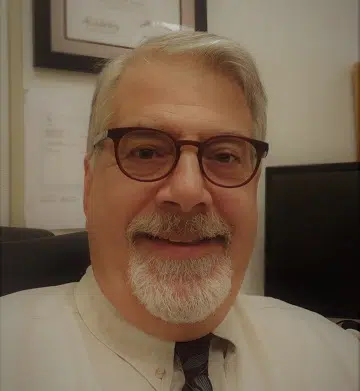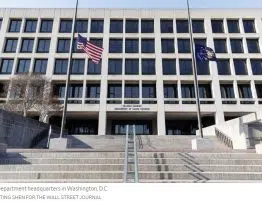
There is an understanding in America that Vladimir Putin, the President of the Russian Federation, has become a champion for traditional Christian values, and that the once atheistic Union of Soviet Socialist Republics (USSR) has in fact become an Orthodox Christian nation. Many Americans now believe that most Russians have embraced Orthodoxy, conformed to its beliefs, and have even repented from the atheist past to push forward into a modern Christian country.
The Constitution of the Russian Federation gives greater credence to this widely held view by many Americans. The Constitution itself guarantees freedom of religion. Article 28 sets forth the guaranty as follows: Everyone shall be guaranteed the right to freedom of conscience, to freedom of religious worship, including the right to profess, individually or jointly with others, any religion, or to profess no religion, to freely choose, possess and disseminate religious or other beliefs, and to act in conformity with them.
Despite this constitutional provision, the Russian government since 1997 has created laws which violate its plain expression. This should be no surprise to the average Russian, as Chapter 7, Article 52 of the former Soviet Constitution also provided for religious freedom, as follows: Article 52. Citizens of the USSR are guaranteed freedom of conscience, that is, the right to profess or not to profess any religion, and to conduct religious worship or atheistic propaganda. Incitement of hostility or hatred on religious grounds is prohibited. In the USSR, the church is separated from the state, and the school from the church.
But, as Felix Dzerzhinsky would enjoy, it appears that the Lubyanka may be maintaining its title for the best view in Moscow as you can still see Siberia from there. In October 1990, a Law on Freedom of Religion was adopted under the Gorbachev regime, which was one of the last and most decisive liberalizing legislative reforms introduced in the old Soviet system. For the first time in Russian history, practicing religion was declared to be “the unalienable right of Russian citizens”. This right also applied to all those residing in Russia, irrespective of their citizenship. The law maintained strict separation between Church and State, provided State ideological neutrality and guaranteed equal rights for all faiths, regardless of their origins and size.
This change of the law gave rise to a strong anti-cult movement, focused in the Moscow Patriarchate of the Russian Orthodox Church. In November 1996, then Orthodox Bishop Kirill, who was subsequently elected in 2009 as the Patriarch of Moscow and all Russia, publicly spoke about the problem of proselytism facing the Russian Orthodox Church (ROC), arguing that once the 1990 law allowed for actual freedom of conscience, “hordes of missionaries dashed in, believing the former Soviet Union to be a vast missionary territory.”
In 1997, Russian President Boris Yeltsin was the first to pass a new law governing religion in Russia, which specifically differentiated between traditional and nontraditional religions in Russia. The Law on Freedom of Conscience and Religious Associations restricted the registration of religious organizations and the activities of religious groups of foreign origin. Religious communities registered under the 1990 law were required to be registered anew, and many were denied, including the Salvation Army, the Jesuits, Jehovah’s Witnesses and the Church of Scientology.
Spiritual security became a driving force for the Russian government following the enactment of the 1997 law. The government became very suspicious of foreign missionaries, believing them to be covert foreign intelligence agents who were actively gathering information about Russian policies and strategic activities.
However, as early as 1993, an organization arose called the Federation of Centres of Research and Information on Sectarianism (FECRIS), which brought Aleksandr Dvorkin forward as the leading anti-cult crusader in Russia, who became the keg agitator and who popularized the term totalitarian sects in record to the peaceful religious minorities in Russia. In 1993, FECRIS made its objective is “to spread credible information on doctrines and activities of totalitarian sects and destructive cults.”
According to reports, it was Aleksandr Dvorkin who spread disinformation on religious minorities, claiming that missionaries were actually foreign agents acting as enemies to Russia, calling Mormons just “a huge international business corporation that operates under the guise of a religious organization,” and saying that Pentecostal believers were known for destructive activities and that “during their ceremonies, people are sent into a trance state, so that they almost lose their human form.”
This demonization of non-Orthodox believers has created a climate of persecution within Russia. On July 6, 2016, Russian President Putin signed two federal laws which in their wording are designed to “counteract terrorism” and to “ensure public safety. These laws became known as the Yarovaya Package, most of which came into effect on July 20, 2016. Roman Lunkin, PhD., called the Yarovaya Package “an instrument of destruction of religious freedom.”
This package immediately curtailed the free practice of religion in Russia. Among other things, Yarovaya limited missionary activity to the premises or land owned by a religious organization or at cemeteries. No public places are allowed for missionary activities, particularly in living premises (home churches or bible studies) or on the premises or land of another religious organization. The missionary is also required to carry with him a written decision of the sponsoring organization allowing missionary activity.
On March 15, 2017, the Ministry of Justice sent a request to the Russian Supreme Court requesting a ban on the organization “Management Center of Jehovah’s Witness” throughout the country and to label the organization as extremist, placing its members on the same status as members of ISIS. Thereafter, members were criminally prosecuted, and it is expected that church property will be nationalized consistent with the practice of the now dissolved Soviet Union.
Following the adoption of the Yarovaya Package, activities such as prayer meetings in homes, posting worship times on social media, or even giving a lecture on yoga have been interpreted as “missionary activity” and at least fifteen different religious traditions have faced charges since June of 2017.
In addition, antisemitism is now more tolerated in Russian society. Antisemitism is increasing year by year in the Federation, according to the Center for Information and Analysis SOVA. In fact, the General Prosecutor’s office has the discretion to prohibit any foreign or international NGO it deems as “posing a threat to the foundations of the constitutional system of the Russian Federation, country, or state security.” Wise minds would quickly recognize that “state security” is the primary value – not the constitutional system.
In 2017, the United States Commission on International Religious Freedom (USCIRF), designated the Russian Federation as a “country of particular concern” or CPC. This means that USCIRF has discovered systematic, ongoing, egregious violations of religious freedom, including, without limitation: torture, cruel, inhumane or degrading punishment; prolonged detention without charges being filed; the abduction or clandestine detention of persons causing disappearances; and other flagrant denies of the right to life, liberty, or the security of persons.
It is well known in Russia that security officers routinely beat and otherwise mistreat detainees to obtain confessions, incriminating information, or merely for corrupt financial gain. Torture and abuse are common in prisons, pretrial facilities, and even local police precincts. Some of the methods used include severe beatings, denial of food, simulated asphyxiation, tying and hanging by the hands, and even electric shock. Threats of against family members and blackmail are also used.
In short, despite the image, the Russian Federation has become a gross violator of religious freedom rights, and the trappings of Orthodoxy cannot disguise the underlying truth of the reestablishment of Soviet-like intolerance of other faiths.

